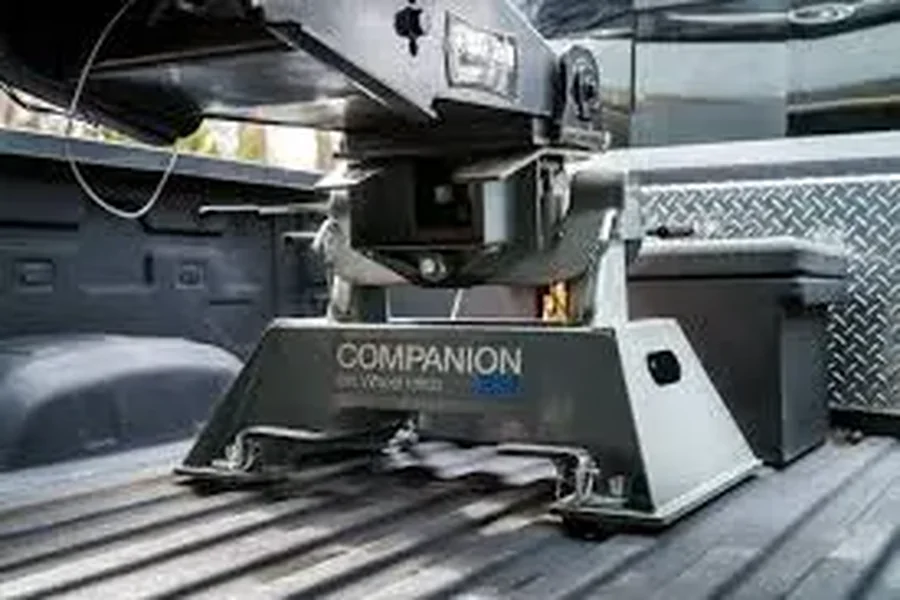Fifth-wheel trailer towing is stable and comfortable for extended travel, but not every vehicle has the right hitch design. That is where a fifth wheel to gooseneck adapter is useful. It lets RV owners tow their fifth-wheel trailer with a gooseneck hitch, which is more prevalent in most pickup trucks. But even if it can minimise compatibility problems, one must be aware of how it works, its advantages, and limitations before switching.
What is a Fifth-Wheel-to-Gooseneck Adapter?
A fifth wheel to gooseneck adapter is a piece of equipment that couples your kingpin on your fifth-wheel trailer to a gooseneck ball installed in the bed of your truck. It is basically a bridge between two tow systems. Fifth-wheel hitches normally employ a big plate-type coupler mechanism, and goosenecks employ a ball-and-coupler system. The adapter allows the two to join without making a permanent change to the trailer or the truck.
There are several adapter options, some are simple coupler attachments that mount directly to the kingpin of your trailer, and others replace the trailer’s pin box entirely. The choice is mainly dependent upon your trailer configuration, the truck bed to trailer height difference, and how often you plan to tow.
Why Use One?
Most individuals like to use gooseneck hitches because they clear more bed space when not towing. With an adapter, you do not have to install a permanent fifth-wheel hitch, which would be bigger and pricier. This configuration provides versatility to those who tow varying trailers.
Adapters are simple to install and remove, making them ideal for intermittent towing. They are a convenient option for individuals who have upgraded trucks or borrowed one with ga ooseneck installation and require towing a fifth-wheel trailer on a temporary basis.
Although adapters can be useful, they are not ideal for every towing situation. One use will alter the geometry and the load distribution between the truck and the trailer. The added leverage can further stress the kingpin box or trailer frame, particularly over rough roads.
Before purchasing, always refer to your trailer maker’s policy. Some makers will void the warranty if an adapter is used since it can result in structural fatigue over time. It’s also a good idea to make sure your truck and gooseneck ball are rated for your trailer’s weight.
Ride Quality and Safety
One of the most widespread complaints is that adapters affect ride quality. Due to the disparate coupling mechanism, drivers say that they experience a slightly harsher ride or slightly more chucking (back-and-forth movement). A well-engineered adapter properly fitted will minimise this problem, but it’s something to be aware of if you travel extensively over long distances.
Always check the connection prior to each journey. Ensure adapter bolts are secured, coupler is locked, and all safety chains are properly placed. Regular checks and maintenance contribute a lot towards offering secure towing.
Selecting the Right Adapter
All adapters are not equal. Factors such as height adjustment, material durability, and mounting type should inform your choice. Steel adapters are durable but heavy, whereas aluminium adapters provide a lightweight yet long-lasting alternative.
Companies such as Andersen Hitches specialise in designing strength- and towing-friendly adapters without adding unnecessary weight. However, whichever company you choose, ensure it is compatible with your trailer requirements as well as towing capacity.
Final Thoughts
A fifth-wheel-to-gooseneck configuration is easy and handy if you already have a gooseneck hitch installed. But you need to know the mechanical compromises. Adapters can be a safe, operational alternative when selected and properly installed, but they demand maintenance, ongoing inspection, and regard for towing capacity.
Before you leave, always inspect your towing equipment, consult your trailer manufacturer, and load every device with the correct load rating. With caution, you can have the best of both worlds: flexibility and stability while towing safely and in confidence.

